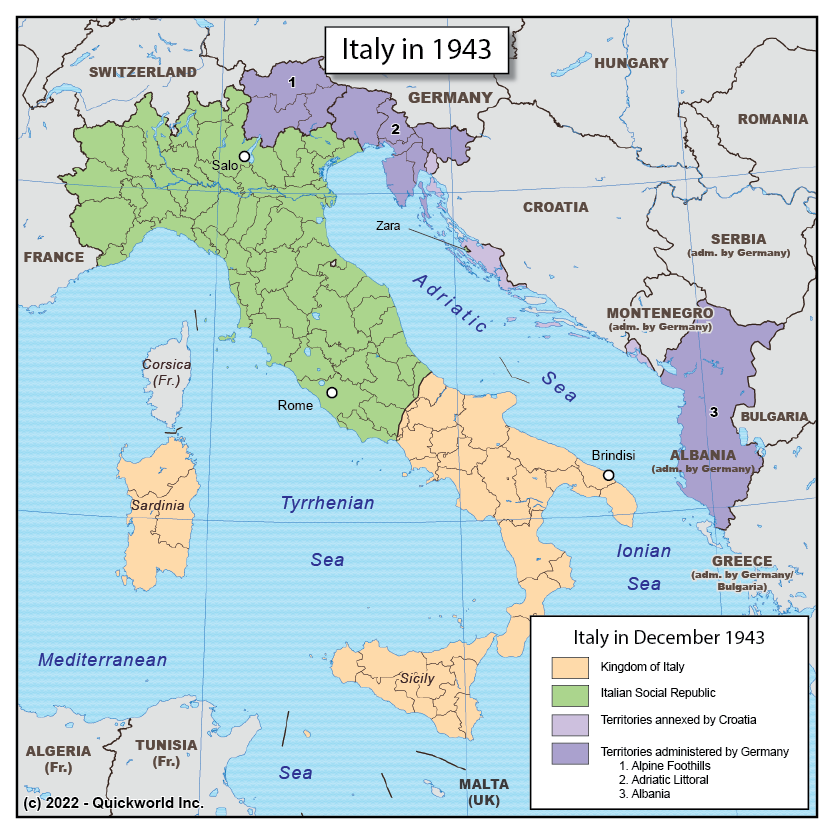The year 1943 was the year of great momentum shift in World War II, with the allies forces pushing back on the Axis and starting what would be the triumphant march towards Rome, Berlin and Tokyo.
Few countries felt this shift more than Italy, a country that by then was overstretched with major global presence throughout Europe and Africa, but feeling the taste of defeat in its North African possessions and being greatly divided politically on the course to follow. Mussolini was put in minority by the Fascist Council, then arrested and liberated by German Commandos. Meanwhile, the new government agreed to an alliance with the Anglo-Americans, and what followed was 18 months of fierce fighting in the peninsula, with the Allies coming from the South and the Germans, helped by Mussolini's newly formed Italian Fascist Republic, controlling the Northern lands.
Italy's political price in the short term was high, losing its annexed and occupied territories in France, Greece, Albania, Croatia and Montenegro, and with Germany's taking direct control of large swaths of land in the Northeast. Ultimately, this calculation allowed Italy not to be treated like a defeated enemy by the Allies, but it lost much territory nonetheless, mostly to Yugoslavia.
Italy in 1943


